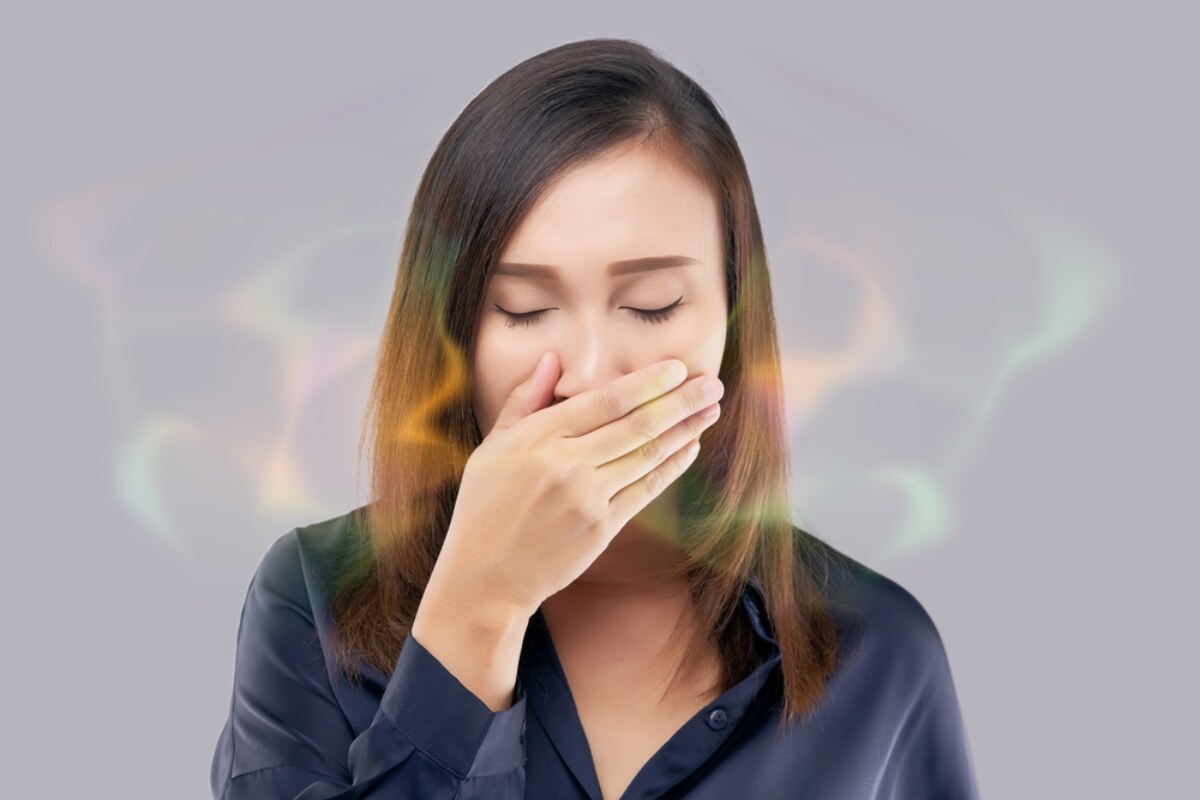
Why does bad breath happen, and how can you fix it easily? Bad breath can feel embarrassing, but the good news is that it’s usually simple to improve. One of the most effective ways to keep your breath fresh is by getting regular dental cleanings from a dentist in SE Calgary. These professional cleanings remove the bacteria, plaque, and food bits that cause mouth odour, helping you enjoy a cleaner, healthier smile.
Many people try mouthwash or gum to hide bad breath, but these are only temporary fixes. Visiting a dentist near you for routine cleanings is the most effective way to address the root cause and prevent the problem from recurring.
Why Does Bad Breath Happen?
Bad breath, also known as halitosis, usually occurs when bacteria accumulate on your teeth, gums, or tongue. These bacteria break down food and release foul-smelling gases.
Common causes include:
- Plaque buildup
- Gum disease
- Dry mouth
- Food stuck between teeth.
- Poor brushing and flossing
- Smoking or vaping
- Strong foods like garlic or onions
Regular dental visits help catch these issues early before they become serious.
How Dental Cleanings Keep Your Breath Fresh
Getting dental cleanings near you is one of the most effective ways to prevent bad breath in the long term. These cleanings remove harmful buildup that daily brushing cannot reach.
During a cleaning, your hygienist will:
- Remove plaque and tartar.
- Clean around the gumline.
- Polish your teeth
- Check for early signs of gum disease.
- Show you better brushing and flossing techniques.
A clean mouth means fewer bacteria and fresher breath every day.
Why Dental Cleanings Help More Than Mouthwash
Some people believe mouthwash alone can fix bad breath. While it may help for an hour or two, it doesn’t remove the source of the smell.
Here’s a simple comparison:
At-Home MouthwashProfessional Cleaning
Masks temporarilyremove bacteria and buildup
Cannot reach below the gums. Cleans deep areas, brushing can’t
Works for short-term freshness,gives long-lasting results
This is why the importance of regular dental cleanings for fresh breath cannot be ignored.
Cleaning Tips to Keep Bad Breath Away
To keep your breath fresh between appointments, try these simple dental cleaning tips for oral hygiene:
- Brush your teeth twice a day.
- Floss daily to remove trapped food
- Brush your tongue gently.
- Drink plenty of water to avoid dry mouth.
- Limit strong-smelling foods
- Replace your toothbrush every 3 months.
- Avoid smoking or vaping.
Good habits paired with regular cleanings work most effectively together.
How Your Dentist Helps You Stay Fresh and Healthy
Seeing a dentist near you for regular cleanings is important for more than just fresh breath. Cleanings help prevent cavities, protect your gums, and maintain overall mouth health. Your dentist can also detect early signs of gum disease, which is a major cause of chronic bad breath.
Extra Benefits of Regular Dental Cleanings
Besides fresh breath, dental cleanings offer helpful benefits like:
- Healthier gums
- Whiter-looking teeth
- Less plaque and tartar
- Lower chance of tooth decay
- Early detection of dental problems
Clean teeth support fresh breath and a more confident smile.
Keep Your Breath Fresh – Start Your Healthy Smile Journey Today!
Cleaning at Nexus Dental Centre is your ideal choice if you want cleaner teeth, fresher breath, and healthier gums. The friendly team there is always available to assist you in feeling comfortable and confident every day.
📍 Find us easily on the Google map and plan your visit today!
FAQs
Can dental cleanings eliminate bad breath?
Yes, if the cause is plaque, tartar, or gum buildup. Your dentist will remove what home brushing can’t.
How often should I get a dental cleaning for fresh breath?
Most people require cleanings every six months, but some may need them more frequently.
Does bad breath mean something is wrong with my teeth?
Often, yes. It can be a sign of gum disease, cavities, or poor oral hygiene habits.
Can tongue cleaning help with bad breath?
Yes, cleaning your tongue removes bacteria that cause odour.
